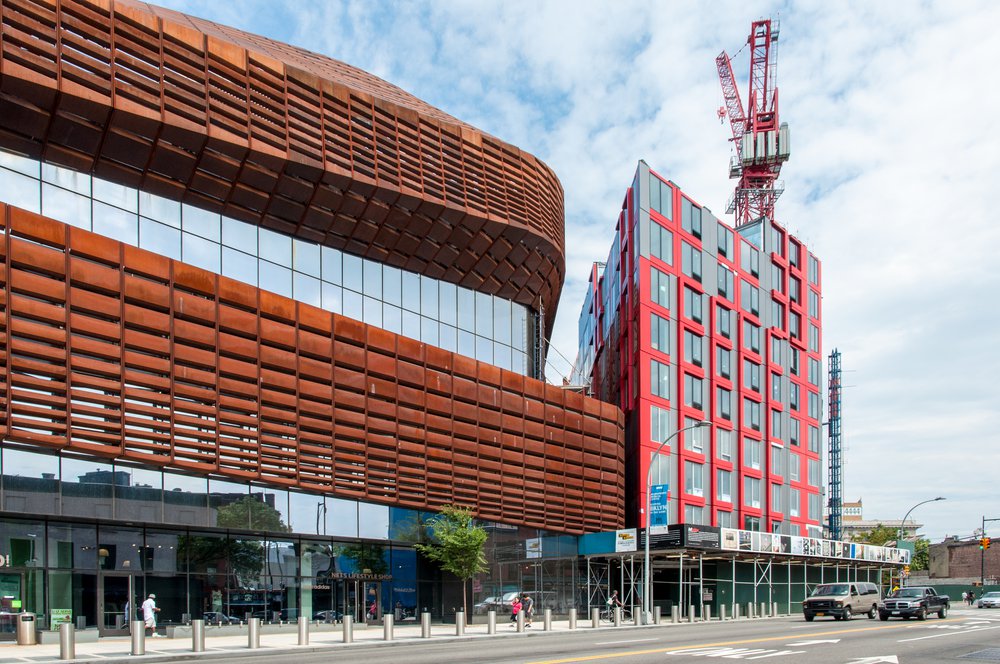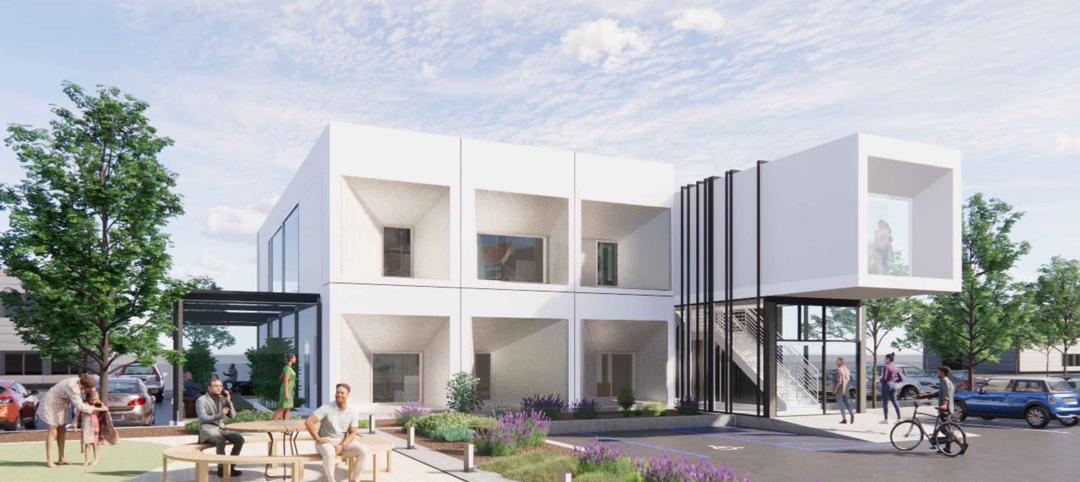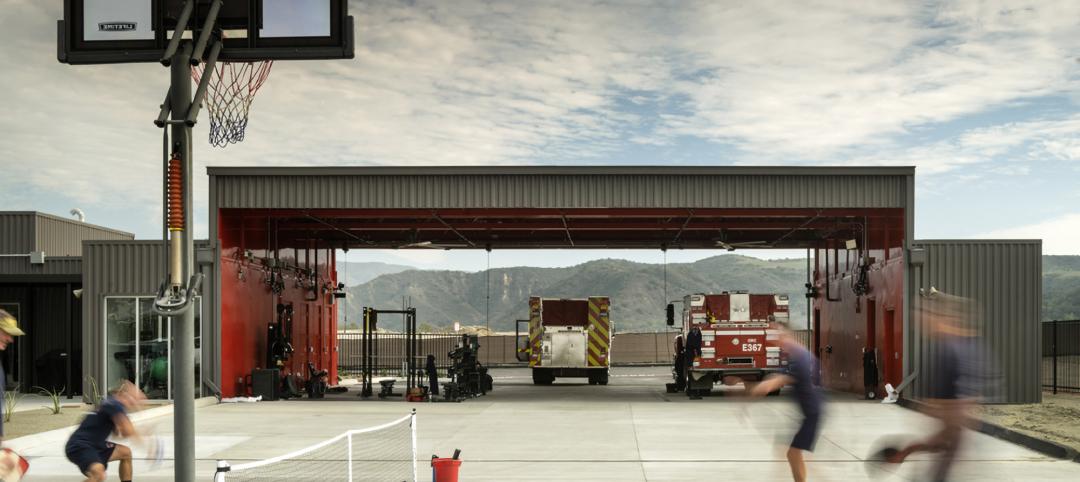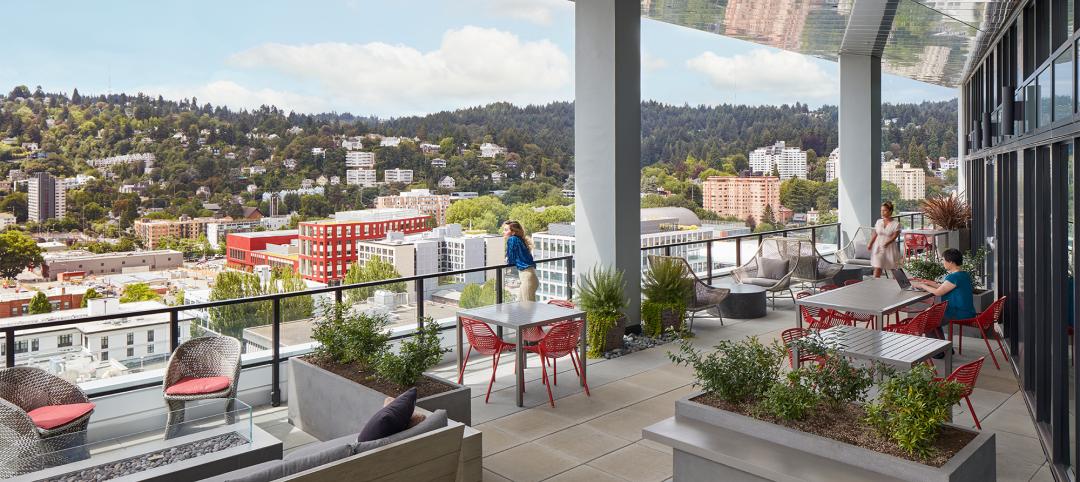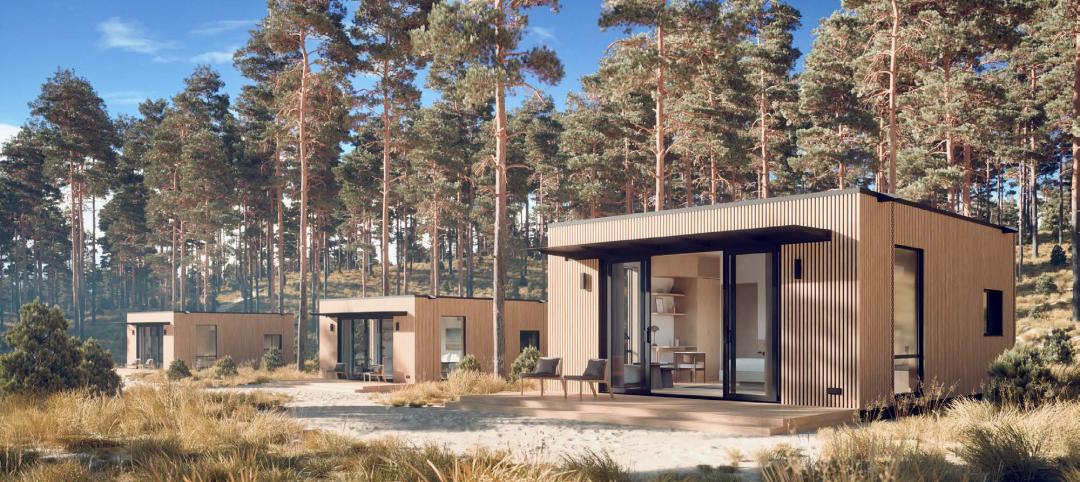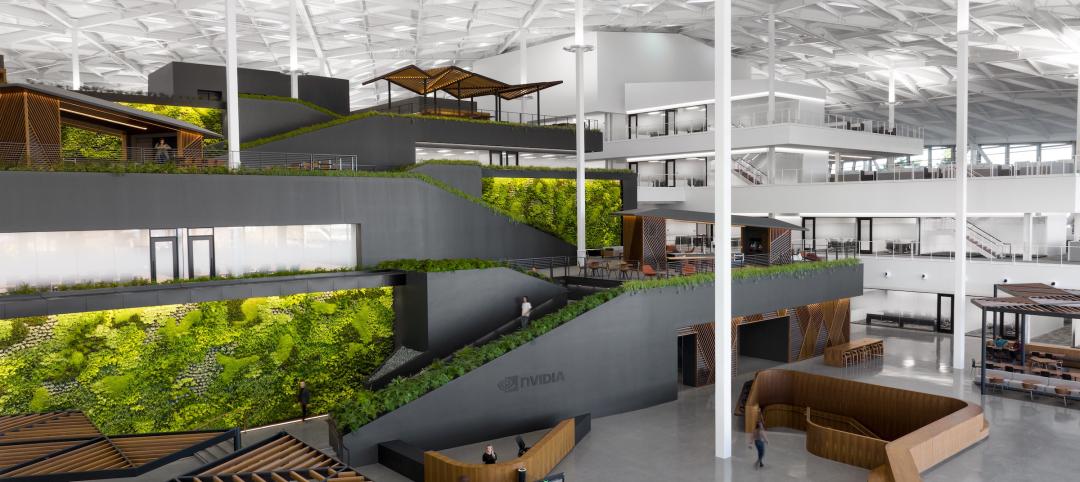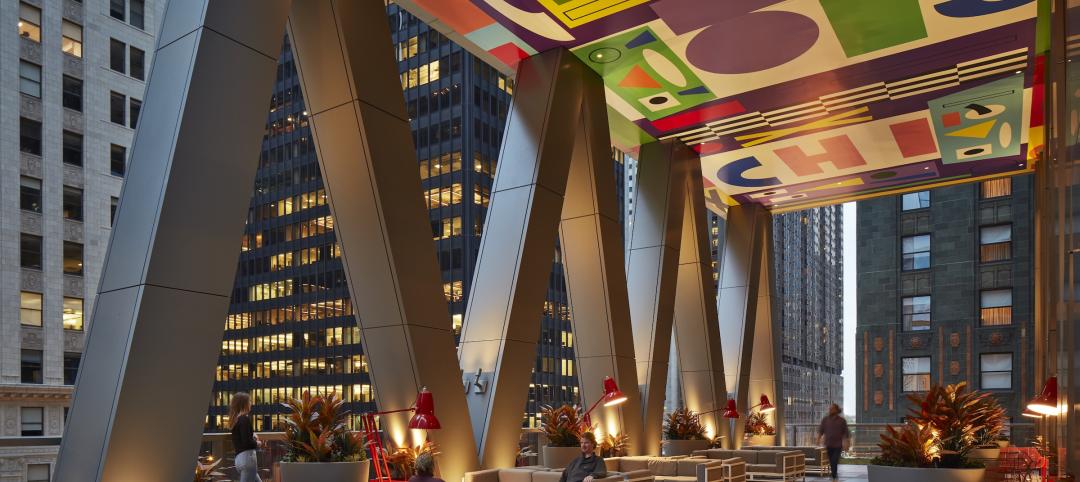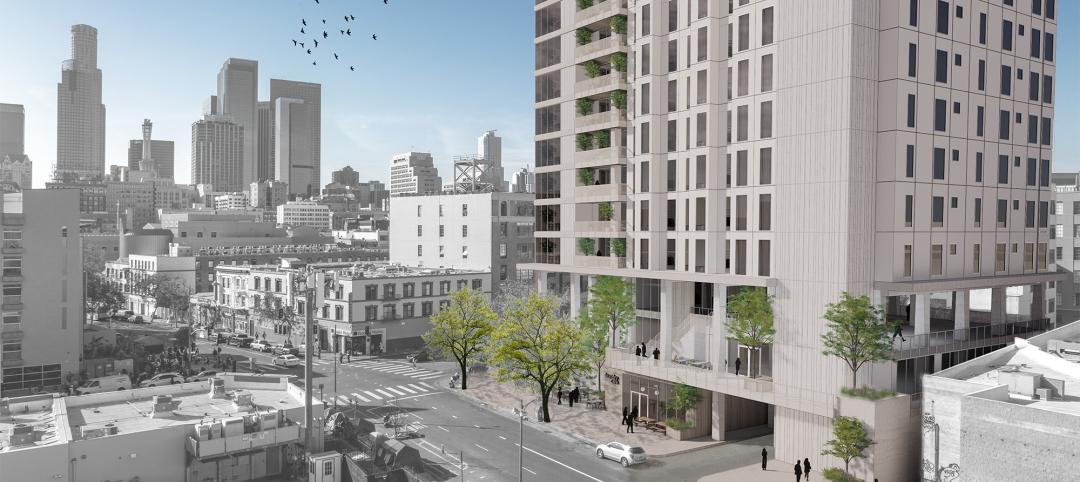In late 2015, the future deployment of modular manufacturing at the service of nonresidential building was looking pretty grim.
Capsys, which has been providing modules for commercial and multifamily projects since 1996, announced that it would close its operations for good in March, after learning that its long-term lease at the Navy Yard in Brooklyn, N.Y., its headquarters, would not be renewed, and deciding that relocating to less-expensive digs would be logistically impractical.
Deluxe Building Systems in Berwick, Pa., which for the past five years has focused on producing steel and concrete modules that are 85% complete for apartments, college dorms, and hotels, was wrapping up work on two buildings for Pace University in Pleasantville, N.Y., which required 170 and 135 modules, respectively. However, this manufacturer didn’t have anything else in the hopper, and couldn’t even say whether one job it was contracted to supply—a 47-apartment building in the Washington Heights section of New York City—would get built.
The company’s 400,000-sf production facility, which was once pumping out 750,000 sf of modules per year, has been pretty quiet lately. “We might need to consider a different business model,” says DBS’s Vice President Dan Meske, whose family started the company in 1965, and during its early years focused on wood-framed single-family housing.
And then in late November, Forest City Ratner, complying with New York State law, notified that state’s Department of Labor, via a “warn notice,” that in the proceeding 90 days it may lay off its 220 union workers from FC Modular, the building giant’s modular housing division that oversees its Brooklyn Navy Yard factory. FC Modular has been providing modules for B2 BKLYN, the controversial 32-story building on the corner of that borough’s Flatbush Avenue and Dean Street, which will be the tallest modular tower to date.
FC Modular has every intention of moving forward, says Susan Hayes, the firm’s President, and had learned some valuable lessons from its experience with the 363-unit B2 BKLYN project, which should be completed this summer and open in the third quarter of the year.
B2 has gone through numerous trials and tribulations, including a work stoppage in 2014 after Forest City’s joint-venture partner, Skanska, furloughed 157 workers that September. The two companies subsequently sued each other over contractual disputes revolving around the integrity of the building’s design and what had caused $50 million in cost overruns.
Forest City eventually bought out Skanska’s interest in their joint venture, and resumed B2’s construction in January 2015. Six months later, the company hired Susan Hayes for the newly created position of President of FC Modular. Hayes had previously been CEO of 5 Elements West, a Manhattan-based construction firm. At the time of Hayes’ appointment, Forest City’s CEO, MaryAnne Gilmartin, voiced her support for modular construction, which she told Crain’s New York Business would be “an important part of the future for our industry.”
In an interview with BD+C in early December, Hayes echoed those sentiments. FC Modular has every intention of moving forward, she says, and had learned some valuable lessons from its experience with the 363-unit B2 project, which should be completed this summer and open in the third quarter of the year.
“The difference today for FC Modular is that we are not an indoor construction company; we are [instead] an assembly plant with the same quality controls and standards for excellence as any other factory.” By becoming more of a factory and less of a construction company, FC Modular “is now able to meet what our clients want, and to deliver quality to our customer base.”
Hayes says FC Modular has projects in various stages of development. She wouldn’t disclose how many, their clients, locations, or timetables, and admits “we’re not getting 75 RFPs a week for modular.” But she also points out that modular construction requires its own systems and designs that can take six to nine months to prepare before construction can begin.
She is confident that modular is going to be “a bigger deal” in nonresidential building, primarily because an “exhausted” workforce simply can’t keep up with the amount of construction going on in the New York metropolitan area. “There is no better way to beat a schedule on a project by 40% than modular,” she asserts.
Hayes is quick to praise B2’s union workforce as “the best I’ve ever encountered.” She says those workers took the warn notice “in stride as best they could.” She calls the possibility of layoffs “routine” in a cyclical business, and wasn’t overly worried about finding qualified workers if and when factory production starts up again.
Related Stories
Healthcare Facilities | Mar 18, 2024
A modular construction solution to the mental healthcare crisis
Maria Ionescu, Senior Medical Planner, Stantec, shares a tested solution for the overburdened emergency department: Modular hub-and-spoke design.
Modular Building | Feb 6, 2024
Modular fire station allows for possible future reconfigurations
A fire station in Southern California leveraged prefab, modular construction for faster completion and future reconfiguration.
Modular Building | Jan 19, 2024
Virginia is first state to adopt ICC/MBI offsite construction standards
Virginia recently became the first state to adopt International Code Council/Modular Building Institute off-site construction standards.
Modular Building | Jan 19, 2024
Building with shipping containers not as eco-friendly as it seems
With millions of shipping containers lying empty at ports around the world, it may seem like repurposing them to construct buildings would be a clear environmental winner. The reality of building with shipping containers is complicated, though, and in many cases isn’t a net-positive for the environment, critics charge, according to a report by NPR's Chloe Veltman.
MFPRO+ Special Reports | Jan 4, 2024
Top 10 trends in multifamily rental housing
Demographic and economic shifts, along with work and lifestyle changes, have made apartment living preferable for a wider range of buyers and renters. These top 10 trends in multifamily housing come from BD+C's 2023 Multifamily Annual Report.
Data Centers | Nov 22, 2023
How is artificial intelligence impacting data center design?
As AI is reshaping how we interact with machines and the world around us, the design of data centers needs to adapt to this fast-changing landscape. So, Page pairs expert thinking with high-performing solutions to meet the needs of rapidly advancing technologies.
Modular Building | Oct 11, 2023
Development startup brings modular solution to hospitality industry
The company's approach extends to various types of accommodations, from landscape hotels and cozy bed and breakfasts to compact micro hotels and food and wine-themed properties.
Giants 400 | Aug 22, 2023
2023 Giants 400 Report: Ranking the nation's largest architecture, engineering, and construction firms
A record 552 AEC firms submitted data for BD+C's 2023 Giants 400 Report. The final report includes 137 rankings across 25 building sectors and specialty categories.
Giants 400 | Aug 22, 2023
Top 175 Architecture Firms for 2023
Gensler, HKS, Perkins&Will, Corgan, and Perkins Eastman top the rankings of the nation's largest architecture firms for nonresidential building and multifamily housing work, as reported in Building Design+Construction's 2023 Giants 400 Report.
Affordable Housing | Jul 27, 2023
Repeatable, supportive housing for the unhoused
KTGY’s R+D concept, The Essential, rethinks supportive housing to support the individual and community with a standardized and easily repeatable design.


